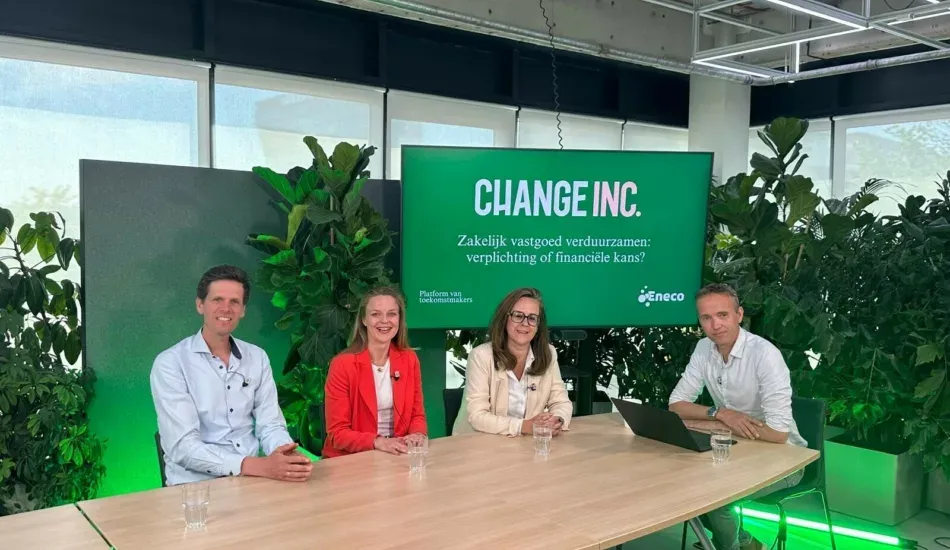Energy label C is mandatory, but those who stop there are missing opportunities. In a Change Inc. webinar, experts from Eneco, Rabobank and RVO discussed how entrepreneurs can make their premises not only future-proof but also financially attractive. This article lays out the key insights and advice.

Thomas Wellink (Netherlands Enterprise Agency, RVO), Mieke Feenstra (Eneco), Merel Meerman (Rabobank)
For many entrepreneurs with their own real estate, becoming more sustainable is no longer an optional extra. Since January 1, 2023 energy label C is legally required for offices larger than 100 m². Yet by early 2025, a significant portion of real estate still did not meet this minimum requirement. But making commercial real estate more sustainable is not just an obligation, and those who focus only on checking off regulations may overlook the greater opportunities. Making it sustainable can also be a smart investment.
Is business real estate sustainability primarily an obligation or rather a financial opportunity? That was the central question in a recent webinar by Change Inc. in collaboration with Eneco.
From must to want
The need is clear, all speakers emphasized. But between necessity and action lies a complex playing field of investment considerations, knowledge questions and practical obstacles. "What should I do?" is the most frequently asked question.
Mieke Feenstra (Eneco): "Many companies are working on sustainability, but often in separate steps. They install solar panels, place a heat pump or choose LED lighting. This is good, but the real gain is in the whole. An integral energy plan, in which you look at insulation, generation, storage, consumption and grid congestion in conjunction."